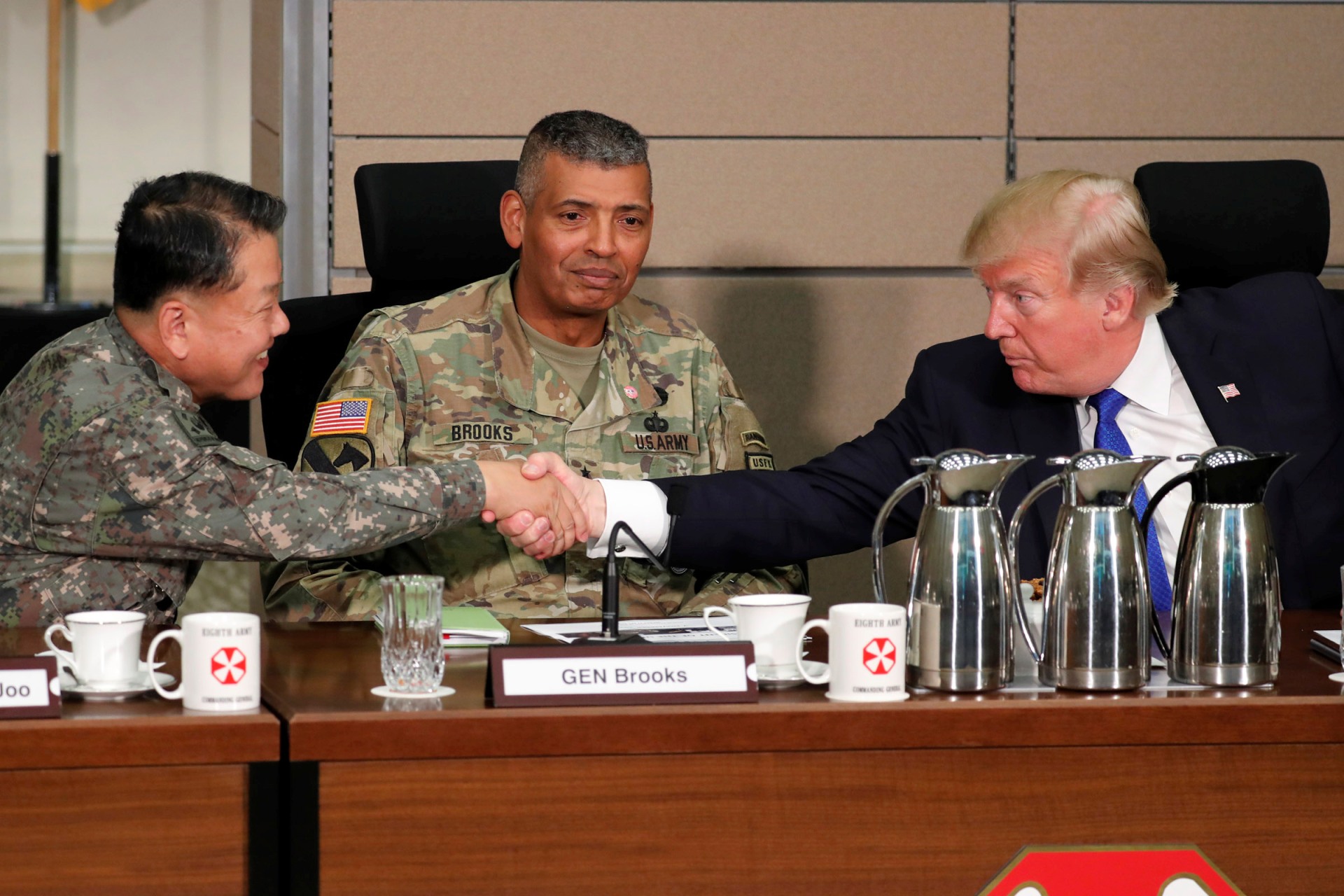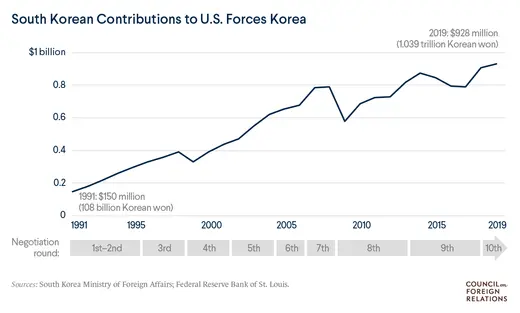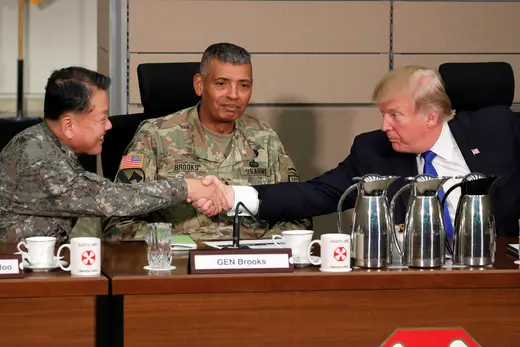Is Trump’s Hard Bargaining Fraying U.S.-South Korean Ties?
President Trump is undermining his peace initiative with North Korea by abruptly raising the cost to South Korea for U.S. security.

By experts and staff
- Published
By
- Scott A. SnyderSenior Fellow for Korea Studies and Director of the Program on U.S.-Korea Policy
President Donald J. Trump’s push for peace on the Korean Peninsula will once more grab the international limelight as he meets again with Kim Jong-un this month in Vietnam. Trump’s détente with the North Korean leader stands in contrast to his tough bargaining with the South Korean government over defense spending. These contradictory efforts are placing an unnecessary strain on a security relationship that has benefited both the United States and South Korea for decades.
An Effective Alliance
The U.S. commitment to South Korea’s defense dates back to the signing of the Mutual Defense Treaty in 1953, after the Korean War ended. Ever since, the presence of U.S. forces has deterred North Korean aggression, enabled South Korea’s economic modernization, and promoted peace and security in Northeast Asia.
The 28,500 U.S. troops in South Korea today are concentrated at the newly constructed Camp Humphreys, south of Seoul. The United States’ largest overseas military base, its construction cost $10.8 billion, toward which South Korea contributed $9.7 billion. South Korea also signed contracts for more than $2 billion in U.S.-made military equipment in 2018, making it a top buyer of hardware.

Drawdown for a Deal?
At the start of this year, South Korea agreed to take on a larger financial burden—$923 million, an 8 percent increase—to support the U.S. military presence on the peninsula. This clears up a sticking point in the alliance in the lead-up to Trump and Kim’s meeting in Hanoi, set for February 27–28. Prolonged haggling over the special measures agreement (SMA) raised fears among some analysts that Trump might offer to partially withdraw U.S. forces as part of a nuclear deal, though U.S. Special Representative for North Korea Stephen Biegun denied that this possibility has been discussed with North Korean officials.
Still, the one-year agreement, which replaced a five-year agreement, raises concerns of a perpetual negotiating cycle between the two countries; an annual deadline could create a dynamic similar to the yearly wage negotiations between South Korean labor unions and conglomerates, which have generated regular controversy, uncertainty, and declines in productivity and efficiency.

The Trump administration has been pressing its allies from Europe to the Asia-Pacific to contribute more toward the cost of U.S. deployments and shared security. The one-year duration of the agreement with South Korea could provide it leverage in negotiations on cost-sharing agreements with Japan and the North Atlantic Treaty Organization (NATO). In those talks, the Trump administration hopes to drive a harder bargain, which could in turn be used as leverage with South Korea.
What to Watch
Though South Koreans continue to express strong support for U.S. forces, the Trump administration should appreciate that a continued push for sharp increases in South Korean contributions could erode support for the alliance.
Since coming to power in 2017, President Moon Jae-in has pushed to make a South Korean general the primary leader of the combined U.S.-South Korean forces. This shift in the chain of command is designed to enhance South Korea’s sense of authority and lessen its dependence on the United States. As South Korea takes on a greater share of the cost and burden of providing for its own defense, these revised operational control arrangements could erode its willingness to continue increasing its financial support of U.S. forces, leading to increasingly contentious debates over the SMA and needlessly eroding trust with what has been a steadfast ally.